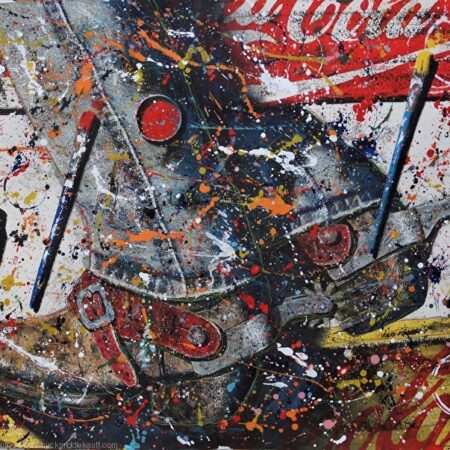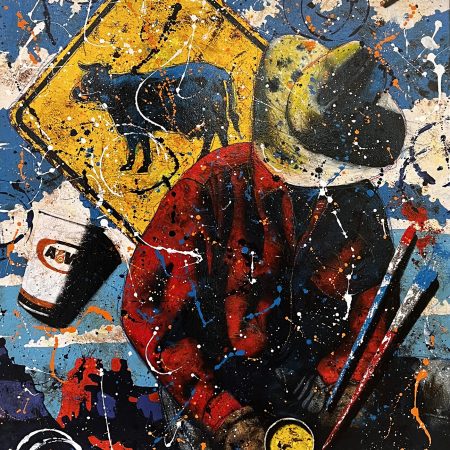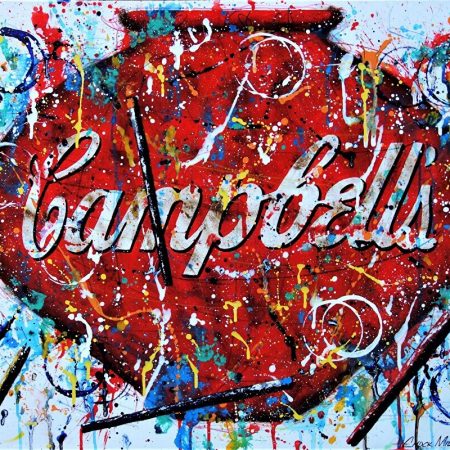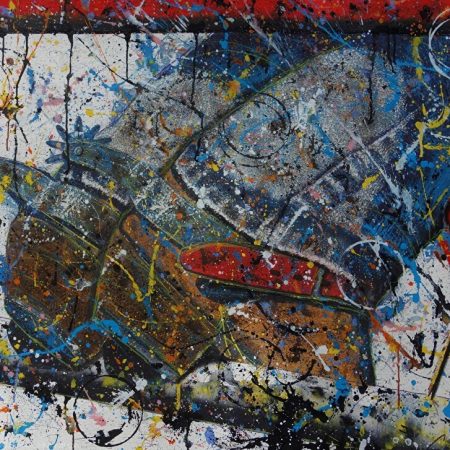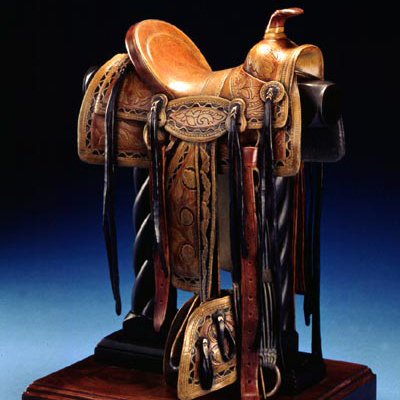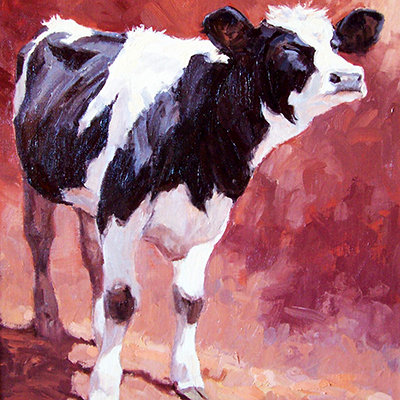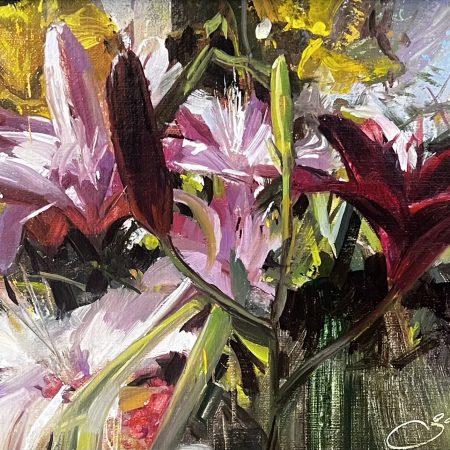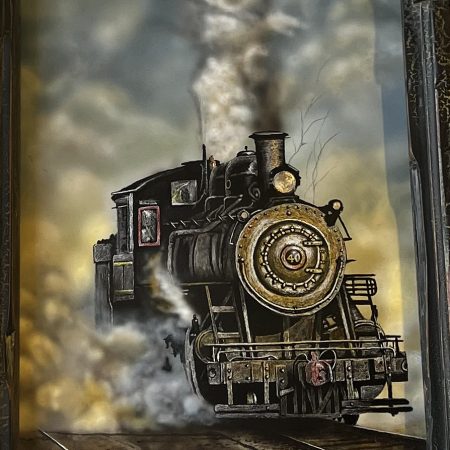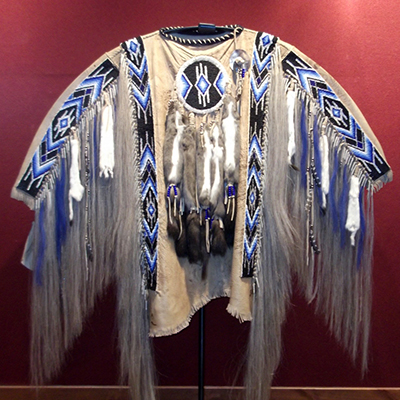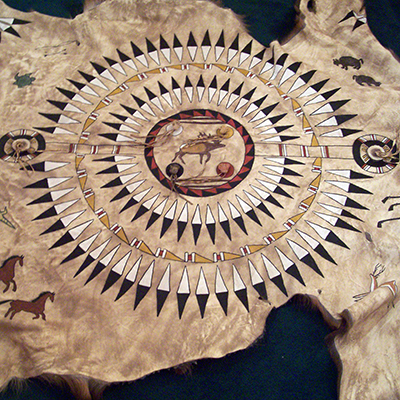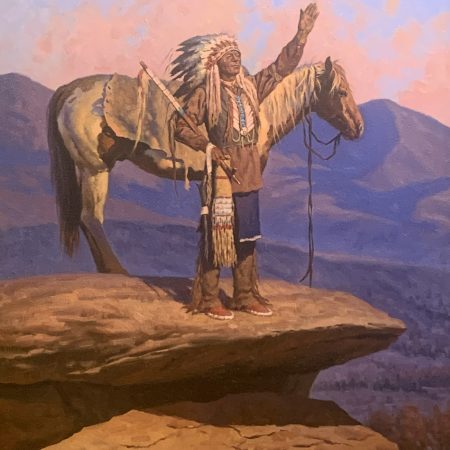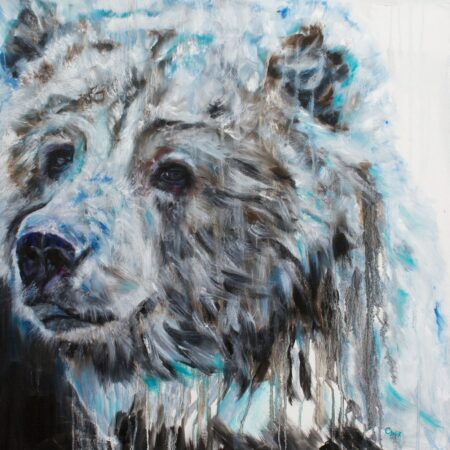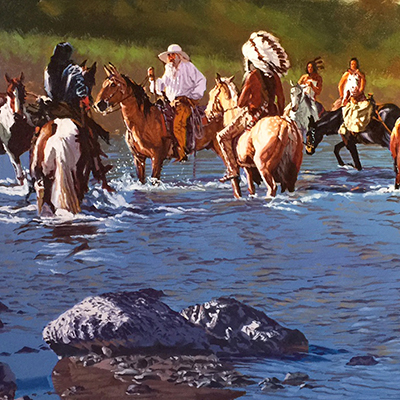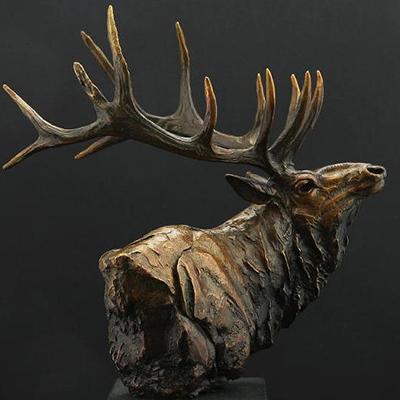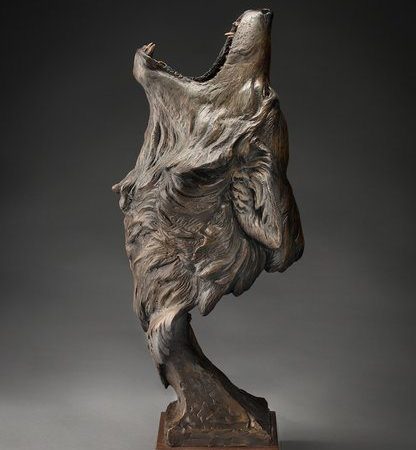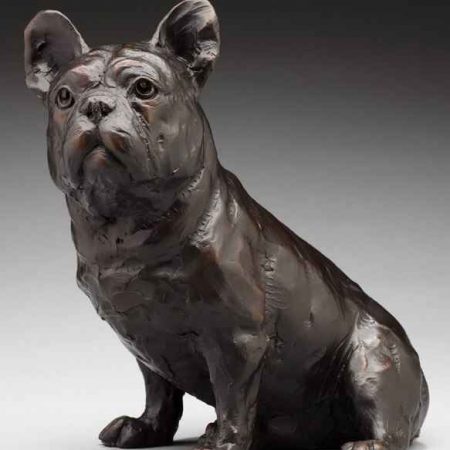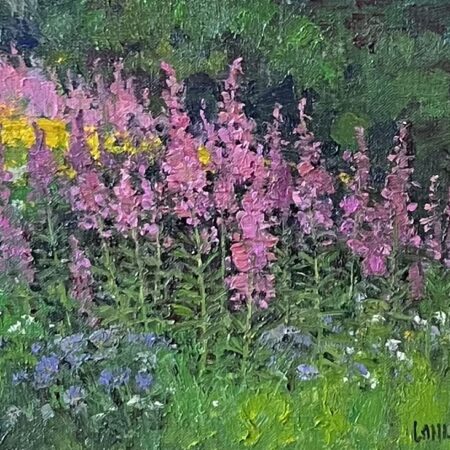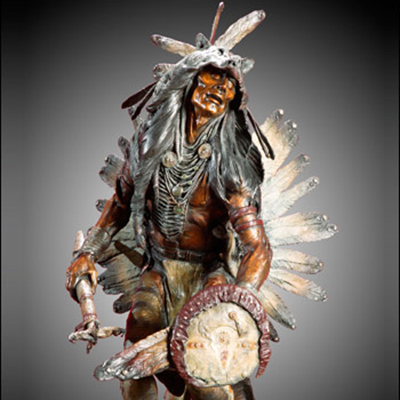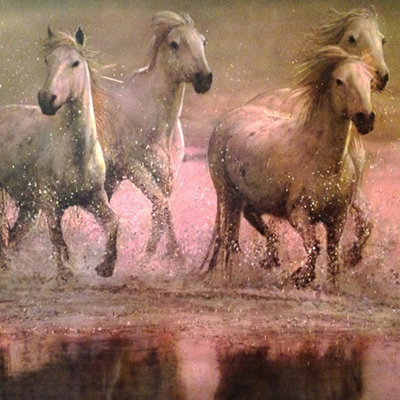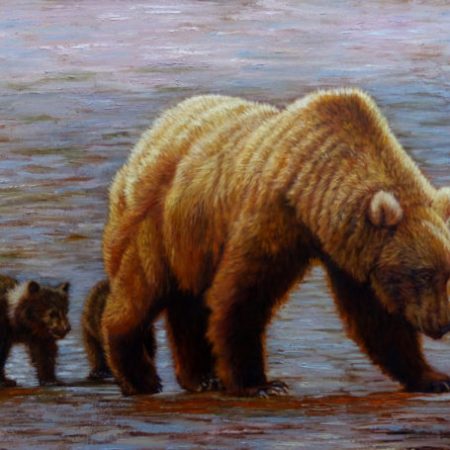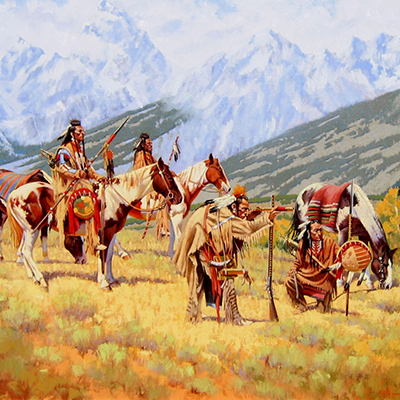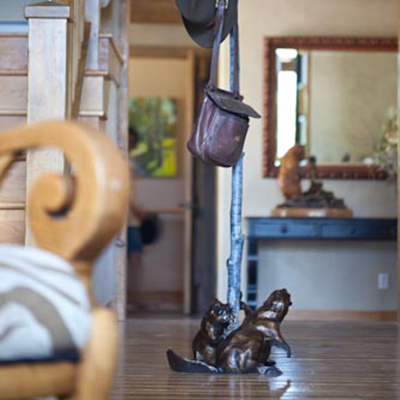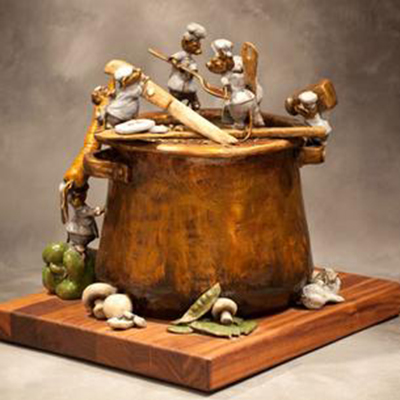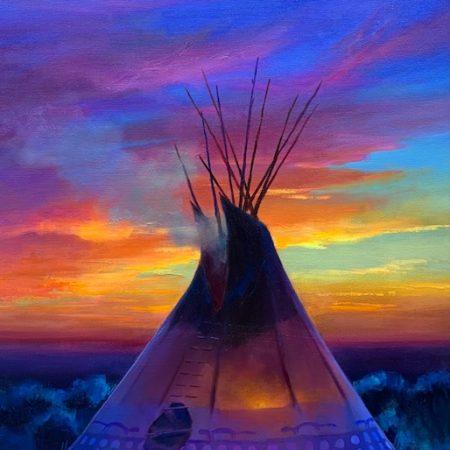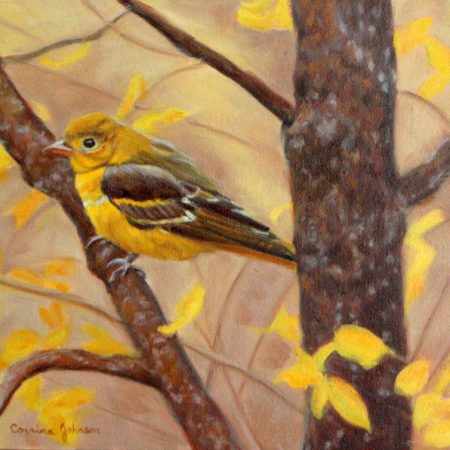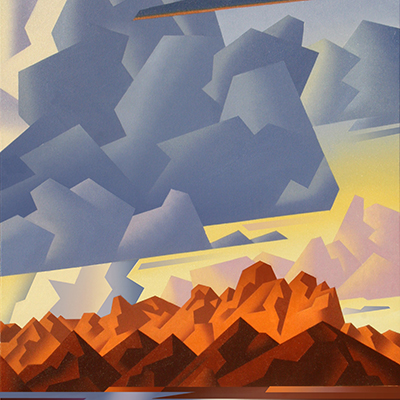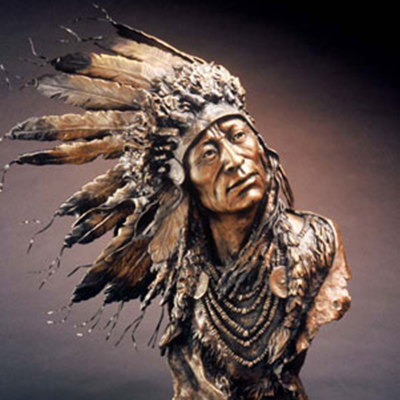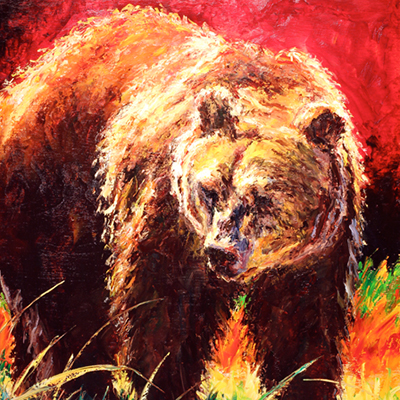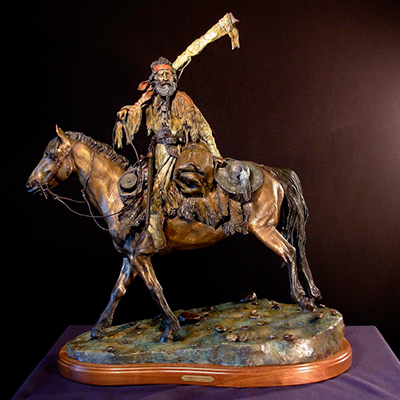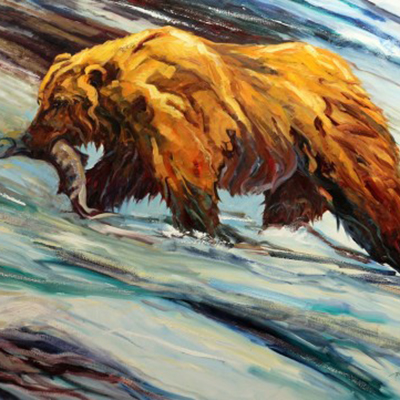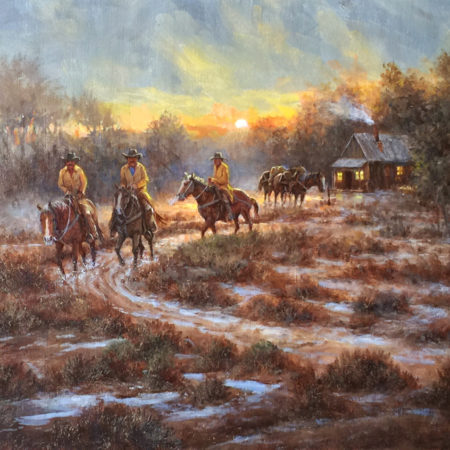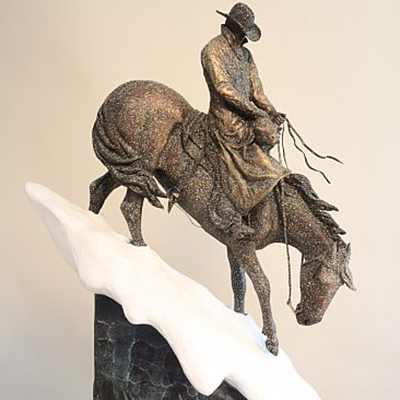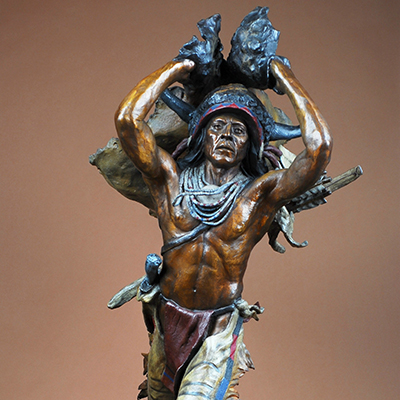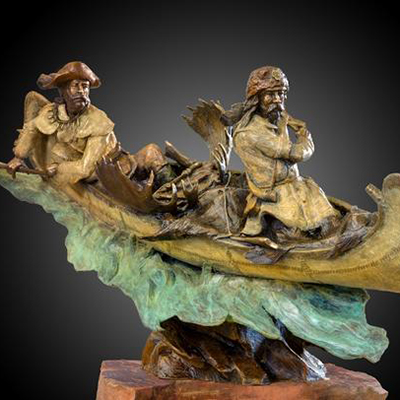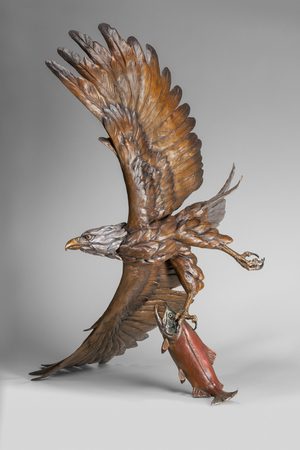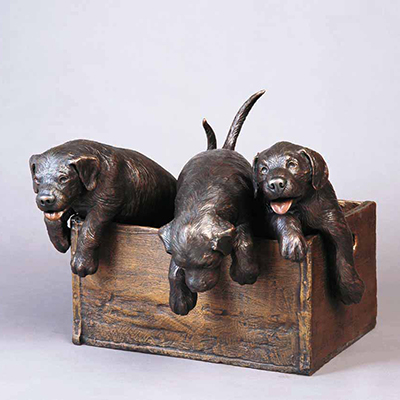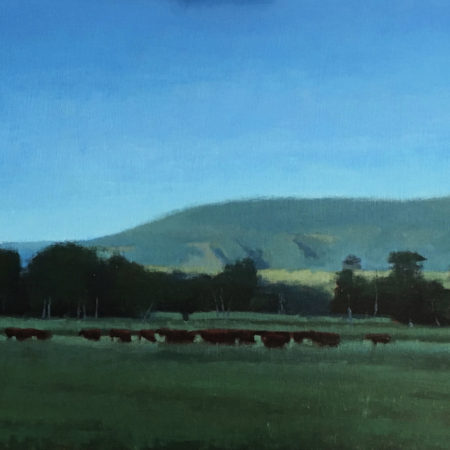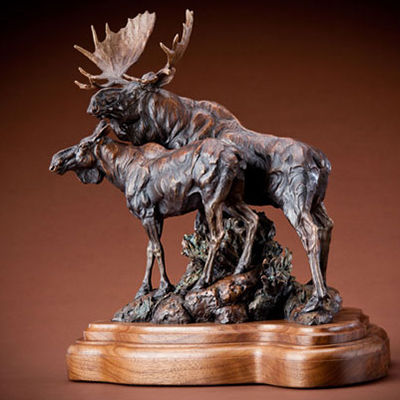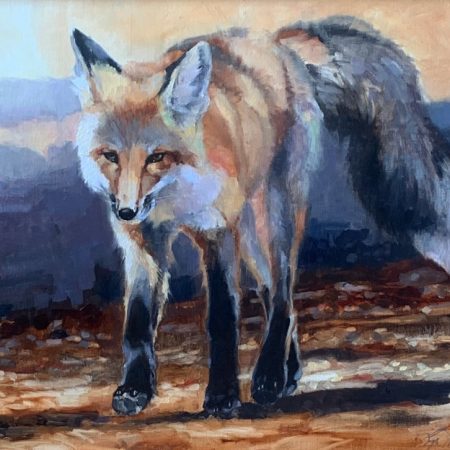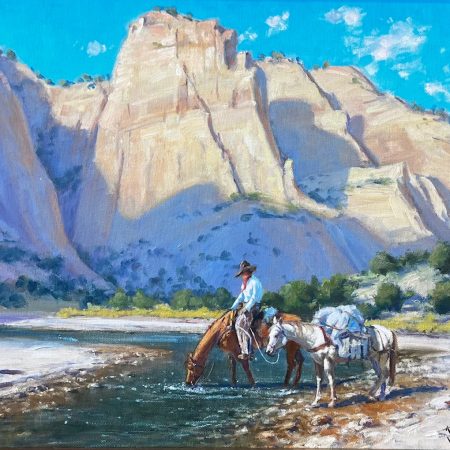I am an artist. Art isn’t my job. It's a way of life. It's about feelings and emotions, concepts and observations, saying what I have to say with paint. I do my artwork for the love of it, for the fun of it, and to share what I see and feel. Like Norman Rockwell, one of my heroes, I want others to experience the things of our culture, and of days gone by, but in a fresh and unusual way. And my collectors (and I) have more fun.
I have a passion for the open road, classic rock and roll, and the cultural icons of America (especially the American West). It’s a mixture of my experiences growing up in the 1950s and 60s and my ongoing travels with my wife Carol. I hope viewers will be entertained and reminisce with me as I paint what I grasp from all that nostalgia, with puns and twists in the combinations of shapes, colors, textures, subjects, and titles.
After gleaning as much as I could from schooling and experience, I experimented with a variety of subjects and approaches before my work finally started to have a vision. That vision began when I was looking through my sister Cheryl’s photo albums. Intrigued by a close-up of a cowboy from the knees down, I had my viewpoint – a tight-cropped, in-your-face perspective on things.
Going back to Roy Rogers and the Lone Ranger, who were my heroes when I was a kid, the distinctive qualities of the cowboy touched something inside me. As I studied images of cowboys, I realized that their persona comes from the way their jeans fit, the dust and crust on their boots, the angle and shape of their hats, and their overall posture.
But beyond all that, I started focusing in on what cowboys do when they’re not chasing cows. They perch on fences, play with yo-yos, fix bikes, and eat M & M's. Almost immediately, I began to include other images in my cowboy paintings, mixing things that didn’t necessarily appear together in real life, but in my mind, they could.
Then, with or without the cowboy, I began to paint old toys, license plates, bicycles, and screen doors, diner counters, vintage cars and pickups, neon signs by vacant motels and cafes, ragged billboards, as well as Beatles, Beachboys, and other classic stars. These things appeal to me – as long as they're old and weathered, or full of colors and textures.
I like the rough softness of jeans, cracks and dirt on boots, rust on signs, the roundness of fenders, the splintery, painted-over roughness of barn wood, the fun shapes of toys and pop machines. Murals on old buildings have inspired me to paint other images as if they are painted on something else. When a concept or design calls for it, I might even stick a vinyl record, candy wrapper, or some other fun piece of memorabilia on a painting.
The viewer has to come closer to check out the details, and to find out what is painted and what is real.
I think it’s the rough-hewn style of my paintings that appeals to my audiences, so it’s OK with me that people often comment on the dramatic lighting, depth, mood, or maybe the fun – but not necessarily the great execution. They also wonder how I manage such rich color and texture with watercolors. I just use a little less water, layer the paint, and scratch with an X-ACTO knife until I get the look I want.
Eventually, after someone pointed out that watercolors under glass are lost in the reflections from numerous windows in the houses out West, I began to work in acrylics on canvas. I found I could create the same subjects with acrylics, with a slightly different feel.
And I didn’t give up the watercolors. Instead, I developed a technique to mount my watercolor pieces on pre-stretched canvas so I can leave the glass off. The process is so durable that a number of those mounted watercolors were still recognizable after going through the 2009 explosion and fire that destroyed Montana Trails Gallery in Bozeman.
I appreciate both watercolors and acrylics because I can work fast. Often working on a number of paintings at the same time, I fill in more images as solutions come to me. Lately, inspiration has me leaving some parts of my paintings unfinished. And because my brushes, jar lids I sometimes use as mini palettes, pencils, and erasers usually end up on my paintings as I work, I've been painting them, too.
It's a painting of a painting in progress. Then, to my wife's consternation, I spatter various colors on the almost finished piece.
It's all a part of the fun I have painting.
And that's the bottom line: I want my paintings to be FUN (FUN for me and FUN for collectors), and to evoke a rich nostalgia for things that may soon be gone. While painting what I love and saying what I have to say as an artist, I want to share my feelings with others who love the same things, to make them smile. It’s a thrill and an honor to me that that people enjoy my work so much that they want it in their homes, offices, and collections.




